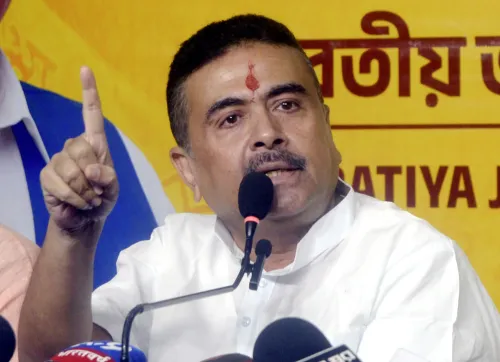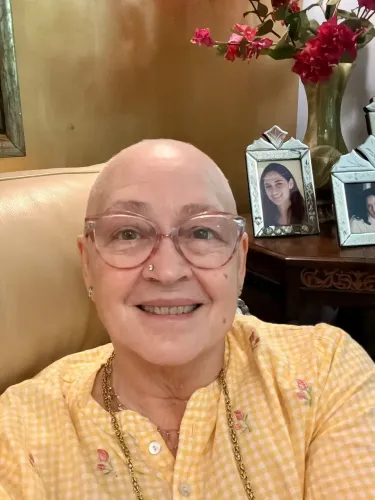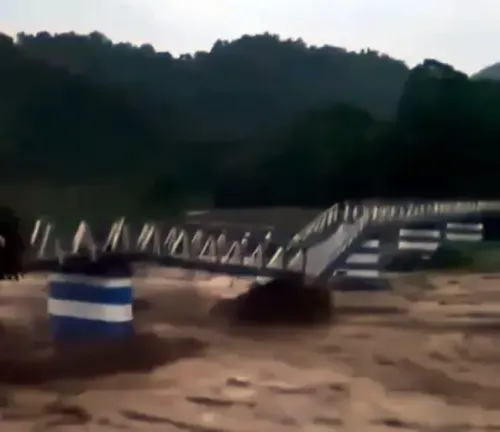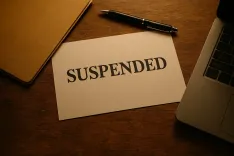Why Did the Supreme Court Dismiss Justice Varma's Plea Against In-House Panel Findings?
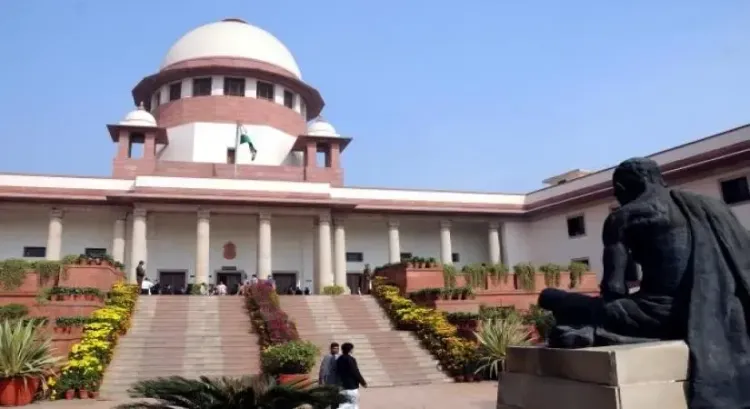
Synopsis
Key Takeaways
- The Supreme Court has reinforced judicial accountability by dismissing Justice Varma's plea.
- The in-house inquiry is a vital mechanism for investigating allegations against judges.
- The Chief Justice has a critical role in upholding judicial integrity.
- Judges cannot claim immunity from internal disciplinary processes.
- The ruling supports the principles of fairness and does not undermine judicial independence.
New Delhi, Aug 7 (NationPress) The Supreme Court has rejected a writ petition from High Court judge, Justice Yashwant Varma, who is facing an impeachment threat due to the cash discovery incident. This petition contested the findings of an in-house inquiry that recommended his removal from office.
In a comprehensive ruling, a Bench led by Justices Dipankar Datta and A.G. Masih examined several significant questions, such as the maintainability of Justice Varma's petition, the legitimacy of the in-house procedure, and whether it breaches a High Court judge's fundamental rights. They also assessed if the forwarding of the in-house panel's report was unconstitutional.
The Bench stated, "We firmly assert that the CJI is not merely a facilitator between the in-house committee and the President/the Prime Minister, as the probe report must be forwarded with appropriate remarks or recommendations."
The Chief Justice plays a pivotal role in maintaining the judiciary's integrity and determining if a judge has engaged in misconduct.
The apex court concluded that there was "no justification" for the argument that the CJI should refrain from expressing personal opinions when forwarding the in-house committee's findings. It indicated that if the inquiry report found the allegations substantial, the Chief Justice is obligated to share it with the President and Prime Minister, and there is no reason to prevent the CJI from voicing his views in this context.
Furthermore, if the in-house committee substantiates the allegations and finds the misconduct severe enough to warrant removal proceedings, the CJI is permitted, in appropriate cases, to support these findings while submitting the inquiry report.
In response to concerns that the CJI's recommendation could bias Members of Parliament, the Bench clarified: "Such opinions are not directed to the Speaker of the Lok Sabha or the Chairman of the Rajya Sabha. Even if Members of Parliament became aware of the CJI's advice, it would not significantly affect the situation."
The court also ruled that the Judges (Protection) Act, 1985 does not provide immunity from internal disciplinary processes like the in-house inquiry.
It stated, "The Protection Act does not disrupt the constitutional framework; furthermore, it does not impede the Supreme Court’s ability to act against a High Court judge accused of misconduct through proper procedures."
The inquiry within the in-house procedure is intended as a fact-finding mission rather than a guilt-determining process, akin to a preliminary investigation preceding official disciplinary actions against an employee.
Justice Datta’s Bench expressed, "We are confident that the inquiry in this instance is preliminary, provisional, and not final, and does not breach any natural justice principles."
Critiquing Justice Varma’s writ petition, the Bench queried whether it was not his duty to highlight any perceived shortcomings in the procedure before accepting the jurisdiction of the in-house committee.
"Once the petitioner accepted the jurisdiction, should it not be inferred that he anticipated a positive outcome, with the writ petition only filed when the result was unfavorable to him?" the Bench noted.
Moreover, they asserted that the in-house inquiry or its conclusions do not directly lead to a judge's removal, emphasizing that "the in-house inquiry is not a removal mechanism, let alone an unconstitutional one."
According to the apex court, the in-house procedure established is "equitable and just," maintaining judicial independence, which is a fundamental aspect of the Constitution.
"If a complaint of a judge's misconduct is lodged and the in-house inquiry reveals sufficient substance in the allegations, he cannot claim immunity by referencing his fundamental rights or the constitutional process for judge removal, as his conduct is subject to scrutiny by the committee and even the CJI,” the Supreme Court ruled.
In his writ petition, Justice Varma argued that a judge of a constitutional court can only be removed based on proven misbehavior or incapacity following an inquiry under the Judges (Inquiry) Act, 1968.
He contended that the in-house procedure, by potentially triggering removal actions without adhering to constitutional protections, is liable to be declared ultra vires.
Furthermore, the petition claimed that the in-house inquiry committee's report should solely be utilized by the CJI for corrective action within his jurisdiction and cannot interfere with the process outlined in Article 124 (which addresses the removal of a judge).
Under the constitutional framework, the CJI lacks the authority to recommend the beginning of removal proceedings, as such a recommendation could bias Members of Parliament and violate the principle of separation of powers, the plea asserted.
Justice Varma has been embroiled in controversy following a fire in the storeroom of his official residence, revealing a cache of charred currency notes. Although he denies any misconduct, asserting it was part of a conspiracy, a three-member committee established under the in-house procedure investigated the matter, found him culpable, and determined that the allegations warranted initiating removal proceedings.

